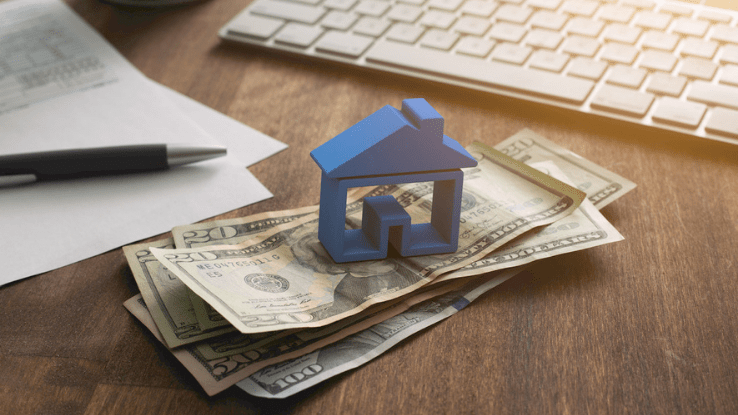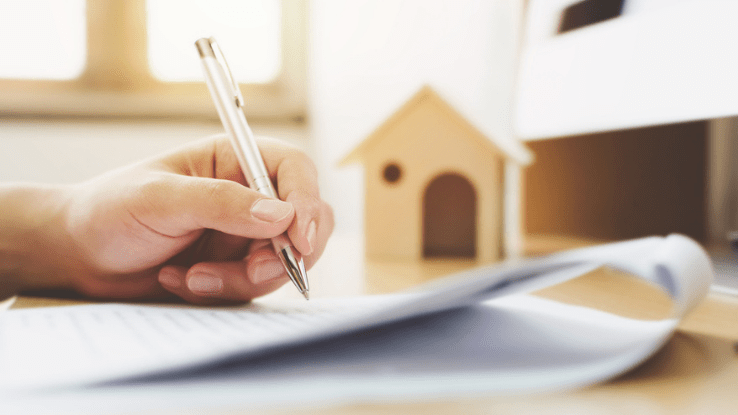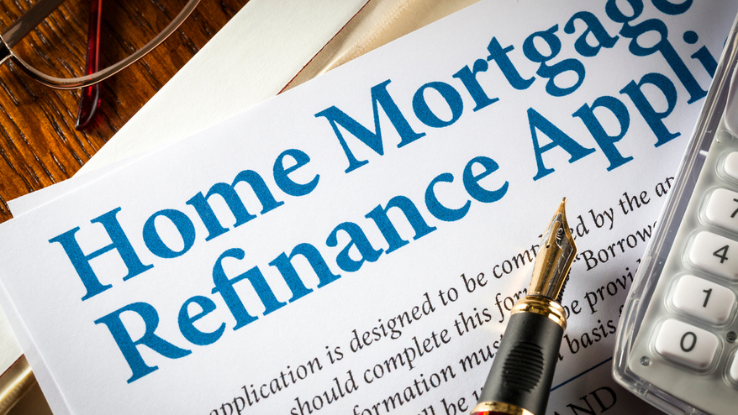
Mortgages can be complicated and confusing. Even after you’ve secured a mortgage and moved into your home, you may still be left wondering: what about refinancing? When should I refinance my mortgage?
Refinancing your mortgage can end up saving you thousands or even tens of thousands of dollars. However, timing is crucial, so you need to plan ahead and understand when refinancing is beneficial. Below, we’ll discuss what refinancing is, how to do it, and when to refinance to save the most money possible.
What Does Refinancing a Mortgage Mean?

Refinancing a mortgage means that you’re borrowing from a lender — sometimes the same lender with which you financed the first time — to pay your current mortgage in full. In exchange for their loaned money, you agree to a new mortgage with them.
In most cases, refinancing is beneficial to both parties: the new lender secures a loan from which they’ll earn interest, and you get a lower interest rate.
How Do You Refinance a Mortgage?

Refinancing a mortgage consists of the same steps you took when initially financing your home. You’ll first need to speak with a lender to discuss your options. They’ll offer you a principal balance and an interest rate.
If these terms are agreeable to you, you can lock in the interest rate and agree to the mortgage. The loan will then go through underwriting, an appraisal process, and finally, closing. Once the loan closes, your old mortgage will be paid in full by the new lender, and you’ll begin making payments to your new lender instead.
Why Would Someone Need to Refinance Their Mortgage?

Refinancing a mortgage can be beneficial because, if done correctly, it can save you quite a bit on interest and lower your monthly payment.
When you apply for any home loan, whether it’s the initial mortgage or a refinance, the lender will consider your credit standing, the value of the home, the loan to value (LTV) ratio, and the current interest rates.
You can benefit from a refinance in several ways, which we’ll discuss below.
Your Credit Score Has Increased
Your mortgage interest rate ultimately determines how much you’ll pay in interest over the length of your loan. Your interest rate is based partially on your credit score. As such, you may get a lower annual percentage rate (APR) if your score has gone up since your original mortgage.
The Average Interest Rate Is Lower Now Than When You Originally Financed
Mortgage interest rates also fluctuate naturally over time based on supply and demand, inflation, and policies put into place by the U.S. Federal Reserve.
Suppose you bought your house when the average interest rate was 4%. Now, ten years into your 30-year mortgage, interest rates average around 2.5%. You might benefit greatly by refinancing because you may be approved for a new loan at a lower APR.
Lower interest rates can save you tens of thousands of dollars if you have enough time left on your mortgage.
You Have Equity in the Home
Finally, you might benefit from refinancing if you have built equity in your home. Equity refers to the difference between the value of your home and the total amount borrowed. It’s how much of your house you own for which you don’t owe your lender money.
You can establish equity in two different ways: if the value of your home increases or when you pay money toward your principal.
For example, if your home was worth $400,000 ten years ago and is now worth $425,000, you have $25,000 in equity even if you haven’t paid any money toward the principal. Alternatively, if you’ve paid down $50,000 in principle on the same home, you now owe $350,000 and have built $50,000 in equity.
Equity matters because lenders balance the risk they take lending you money with reward. Higher risk almost always equates to a higher APR.
A lender is far more likely to offer a low APR if you’re borrowing $350,000 and the collateral for the loan (your home) is worth $400,000. They stand to earn their money back if you default on the loan, plus the $50,000 you previously had in equity.
When Should I Refinance My Mortgage?

So, when is the right time to refinance your mortgage? The answer to this question depends on several factors, including how long you have left on your mortgage, how much you still owe, whether your credit score has changed, and how much equity you have in your home.
Generally speaking, refinancing is usually a better option if you have a decent amount of equity, more than ten years left on your mortgage, your credit score has improved, or interest rates have gone down significantly.
If you find yourself asking when you should or can refinance your mortgage, you can always contact your lender to determine if refinancing is possible and in your best interest.
How Long Does It Take to Refinance a Mortgage?

Once you speak with a lender and get the process underway, refinancing typically takes between 30 and 45 days or as long as 60 days. Your exact “closing” timeline will depend on the specific lender, the state you live in, and the time it takes to get the appraisal done.
What Is Needed to Refinance Your Mortgage?

You might be asking, what do I need to refinance my home? Most of what you’ll need to refinance include what you used to secure the mortgage in the first place, plus some additional items. You’ll need:
- Your name on the title
- An acceptable credit score (determined by your lender)
- An acceptable debt-to-income (DTI) ratio (determined by your lender)
- (Sometimes) equity in your home (often 20% or more of the value)
Closing costs (these can range from 2% up to about 6% of your new principle)
Wrapping Up: Why Refinance Your Home?

Refinancing your mortgage can benefit you greatly and potentially save you tens of thousands of dollars in interest over the life of your loan. Keep in mind that you’ll likely need a history of mortgage payments for at least six months, your name on the title, and closing costs. You’ll also need to meet all of your lender’s other requirements, like low DTI and a suitable credit score.
If your credit score has increased significantly, you have built equity in your home, or average interest rates have dropped, refinancing might be in your best interest.





